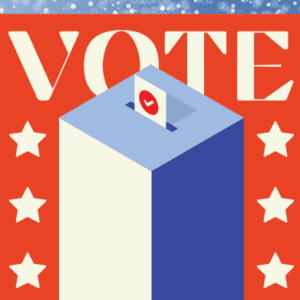We lined up three pastors of color, as well as two professors who understand the history of the evangelical movement in the US and its impact on every issue, from race to life to immigration to the poor, and we asked them to speak from the heart.
They challenge us to look at politics—which just means how we choose live together—from the “bottom up.” Like Jesus does—Jesus who showed up as a poor person of color born into occupied territory, had no possessions and regularly stood up to the religious authorities of his day, received a wrongful conviction and was executed by the state. What does that teach us about how to live out our faith in the current political climate?
How can we live in such a way that we hear God proclaim, “Well done, good and faithful servant!” (Matt. 25:21) and avoid the harsh judgment Jesus reserved for the Pharisees: “You tithe faithfully, yes, but you have neglected the more important matters of the law—justice, mercy and faithfulness” (Matt. 23:23)?
Let’s dive into this vigorous conversation, open our hearts to these challenging truths, lean into risk, and allow for transformation.
We can do this together—are you ready? (Be sure to check out the great list of resources below!)
What Do Our Politics Look Like When Our Faith Is in the Driver’s Seat (and not the other way around)? from Christians for Social Action on Vimeo.
Meet our panelists:
- Rev. Edward Bailey has been the Senior Pastor of Bethel AME Church (Lancaster) since 1993.
- Carmen Dones is Pastor of Outreach Ministries at Harrisburg Brethren in Christ Church, where she ministers directly to the Latino community.
- Rev. Lori Person-Baynard is a former pastor of an Anabaptist church in Harrisburg who is currently the Director of Theology & Public Policy for Salvation & Social Justice, a nonprofit that “seeks to liberate public policy theologically by building Black faith-rooted communication strategies, advocacy, and public education campaigns … with a particular focus on racial justice through abolition, restoration, transformation, and coalition.”
- Dr. John Fea is a church historian, Professor of US History at Messiah University (Mechanicsburg), and the author of, among other books, Believe Me: The Evangelical Road to Donald Trump (Eerdmans, 2018) and Was America Founded as a Christian Nation? A Historical Introduction (Westminster John Knox Press, revised in 2016).
- Dr. Robert Reyes is Professor of Human Development & Family Science at Messiah University (Mechanicsburg). His research centers on Latino families. He is the co-author and editor of numerous books and articles, addressing, among other things, the effects of immigration policies on undocumented youth and on Latino immigrant families.
- Dr. Ron Sider is Founder and President Emeritus of Christians for Social Action; Distinguished Professor of Theology, Holistic Ministry & Public Policy at Palmer Theological Seminary; and the author of, among many other books, The Scandal of Evangelical Politics: Why Are Christians Missing the Chance to Really Change the World? (Baker Books, 2008) and, more recently, the editor of The Spiritual Danger of Donald Trump: 30 Evangelical Christians on Justice, Truth, and Moral Integrity. Dr. Sider offers a closing reflection.
- Kristyn Komarnicki, Director of Dialogue & Convening at CSA, moderates the discussion.
Resources
Below you’ll find books, films, podcasts, articles, websites and action ideas to help you bring insight, nuance, and inspiration to your political conversations and decision-making processes. (In our effort to support independent, black-owned businesses, all book titles link to Uncle Bobbie’s bookstore in Philadelphia—please join us by supporting this or other businesses like it.)
Rev. Bailey recommends:
- The Racial Contract by Charles W. Mills
- Equal Justice Initiative
Dr. Fea recommends:
- Evangelicals for Biden
- “The 17th-century story of Bacon’s Rebellion referenced by Rev. Lori Person-Baynard is chronicled best in Edmund Morgan’s American Slavery-American Freedom”
Additional resources:
- Brandi Miller’s podcast, “Reclaiming My Theology,” takes on American politics and asks CSA Executive Director Nikki Toyama-Szeto, “What are Christian Politics?”
- Freedom Road’s national town hall can be viewed here
- Keeping the Faith: Reflections on Politics & Christianity in the Era of Trump & Beyond
- Believe Me: The Evangelical Road to Donald Trump by John Fea
- The Spiritual Danger of Donald Trump by Ronald J. Sider
- Jesus and the Disinherited by Howard Thurman
- Divided We Fall: America’s Secession Threat and How to Restore Our Nationby David French
- For Love of Neighbor: Politics for the Common Good is a documentary that tells the stories of three individuals—Sen. Tim Scott, Justin Giboney, and Sarah Imboden—who, on different levels and in distinct ways, are seeking to engage faithfully in contemporary American politics. The film does not provide specific answers for how Christians should engage in politics—but instead explores foundational questions about the purpose (and limits) of politics and the proper Christian posture toward government and secular society. Ultimately, the film aims to spark further discussion and offer a hopeful vision for Christian participation in contemporary public life.
- Faith on the Ballot was a weekly sermon series leading up to the 2020 presidential election, with prominent pastors and activists lending their voices to issues that intersect with racism—the primary religious issue of this election.
Action ideas:
- Write an op-ed for your local newspaper, expressing your justice concerns. The OpEd Project gives you all the tips and tools you need!
- Hold the Line is a guide addressing the potential and real challenges we face in the upcoming presidential election. Whether it’s cuts to the US Postal Service, malfunctioning voting equipment, voter suppression, misinformation, intimidation at the polls, violence among political supporters, or the President suggesting that he might possibly refuse to accept defeat—we are witnessing ongoing actions that destroy our democracy bit by bit. This guide is designed to help people from all walks of life take action to ensure that the election is free and fair, and that the results are respected. There is a role for everyone in this effort!
- Be a volunteer chaplain at polling sites of vulnerable voters on election day. Help protect the precious right to vote in one of nine key states.
- Faith in Public Life offers a terrific Faithful Voter Toolkit, designed to give faith leaders easy access to ideas for engaging their congregations and communities through sermon suggestions, scriptures, talking points, social media and more.
- Read indigenous writers—here are 10 suggestions to get you started.
- These CSA initiatives frame the issues and put lots of tools in your hands to make short- and long-term changes at both personal and societal levels:
- And check out our rich library of resources on pretty much every major justice issue! Create your own curated list by clicking on your topic of interest on the left of the screen.


